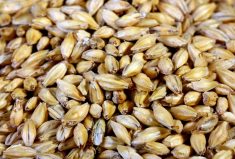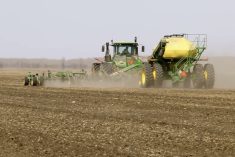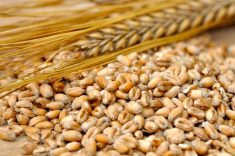Geneva | Reuters — Food production has dropped to an all-time low in Syria where millions of hungry civilians are struggling through their sixth winter in a war zone, United Nations agencies said Tuesday.
Many farmers have had to abandon their land, unable to afford the soaring cost of seeds, fertilizers and tractor fuel, the Food and Agriculture Organization and the World Food Programme said.
Wheat output — vital for making flat loaves of bread which are a staple of the Syrian diet — dropped from an average 3.4 million tonnes harvested before the war began in 2011 to 1.5 million this year, they said in a joint report.
Read Also

India slaps 30 per cent import duty on yellow peas
India has imposed a 30 per cent duty on yellow pea imports with a bill of lading date on or after Nov. 1, 2025.
“There is an estimated shortfall of about 838,000 tonnes in the country’s national wheat requirement of 3.854 million tonnes taking into account commercial imports,” it said.
The area planted for cereals in the 2015-16 cropping season is the “smallest ever,” they added. Field visits and surveys showed higher than average production of barley, which some farmers switched to as the rain-fed crop is more resistant than wheat, and “large patches of cropland affected by drought.”
“Food production in Syria has hit a record low due to fighting and insecurity but also bad weather conditions,” World Food Programme spokeswoman Bettina Luescher told a news briefing.
Food shortages are particularly worrying in east Aleppo, the rebel-held part of the city besieged by government forces where the U.N. says 250,000-275,000 civilians still live.
“The last food rations provided by the U.N. have been given out (in east Aleppo). It is very hard to say how people will be coping there. Of course it is a very different situation than in the capital where food is readily available at the markets,” Luescher said.
Reuters reported last month that Syria’s state grain buying agency Hoboob struck a deal to purchase one million tonnes of wheat from political ally Russia, covering the needs of government-controlled areas for a year.
Before the war, Syria was an exporter of livestock. “Now herds and flocks have shrunk significantly, there are 30 per cent fewer cattle, 40 per cent fewer sheep and goats and a staggering 60 per cent less poultry which of course is the most affordable source of animal protein,” Luescher said.
More than seven million people in Syria are classified as “food insecure”, meaning they are not always sure where their next meal is coming from, she said, adding: “Eighty per cent of the households across Syria struggle with a lack of food or lack of money to buy food.”
The World Food Programme is distributing rations to more than four million people in Syria each month.
— Stephanie Nebehay reports on the United Nations and humanitarian aid issues for Reuters from Geneva.












